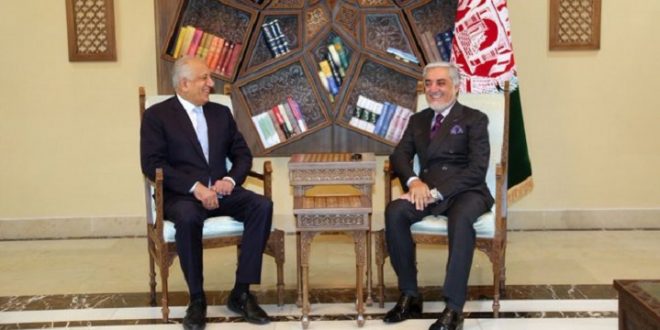Zalmay Khalilzad, the US’ point man for Afghanistan reconciliation, has recently met with the top officials in Kabul for the first time since American President Donald Trump abruptly called off the peace talks with the Taliban last month. This trip of Khalilzad shows that the initial steps to reinvigorate the peace talks with the Taliban are being taken. Realizing that a lasting stability in Afghanistan is in their interest, the regional countries have also combined forces with a renewed zeal to work for the Afghan peace. The quadrilateral talks on Afghan peace that took place in Moscow on Oct. 25, featuring diplomats from Pakistan, the US, Russia and China, is a case in point. Meanwhile, the international community has also recently lent weight to Afghan peace process as NATO’s Senior Civilian Representative to Afghanistan Ambassador Sir Nicholas Kay said helping Afghans achieve lasting peace was a priority for the NATO member countries. These are welcome developments but the crucial aspect is that some of these states are the very ones who are equally blameful for bringing Afghanistan to the current pretty pass.
The irony is that where the US and Russia are concerned, both of these states have been engaged in the Afghan war for decades – they being this perennial war’s causes as well. Kabul became a central battlefield in the Cold War, as the Americans and Soviets had locked horns and struggled for power and influence. Moreover, Afghanistan to date is yet to recover from the instability of the ‘Jihad’ that was fought in every nook and cranny of this country. Meanwhile, on the part of Pakistan, in spite of sharing deep-knitted relations with Afghans, the country harbors and paves way for financial support to the Taliban and other terrorists who wreak havoc in Afghanistan. The neighboring country has been acting as such for a very long time. Currently, all these countries which see themselves holding a stake in Afghanistan’s tranquility and peace are now seemingly synergizing to finally put an end to the Afghan mire. It is hoped that these renewed bids for Afghan peace are not symbolic and made in good faith.
On the other hand, these efforts will only prove effective when a representative government acceptable to all Afghans takes power at the earliest possible. Otherwise, a power vacuum in Kabul will only result in more chaos. At this hour, apprehensions in this regard are growing with each passing day because there are inordinate delays in announcing the results of September’s presidential election. Therefore, while external players have their roles, lasting stability can only come when the Taliban and the Afghan government sit together to iron out differences and work for building peace. There is no doubt that if the ongoing election controversy is resolved, the upcoming government sans any delay would present its delegation of negotiations for talks with the Taliban. However, the success of this move will be contingent upon the rebels’ willingness to see eye-to-eye and sit on the table with the future government.
 Afghanistan Times
Afghanistan Times




